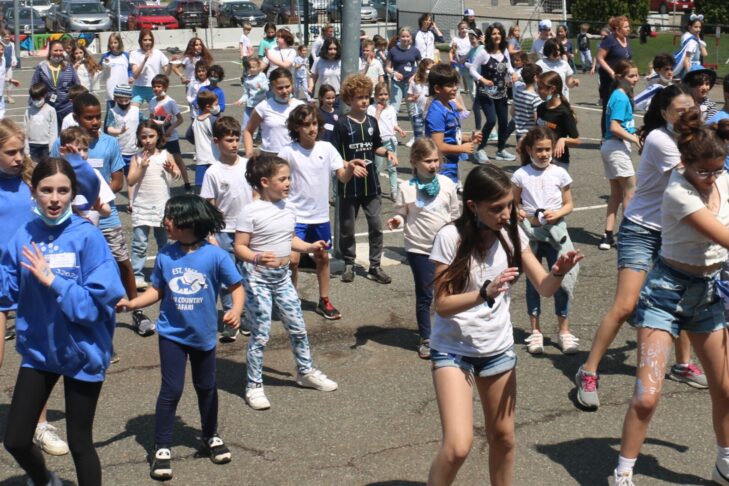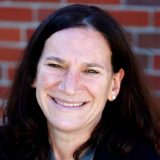Zionism. It is a concept rich in history, perspective, hope, and dreams. It is also a concept steeped in complexity, weight, challenge, and debate. Zionism means a great deal to many, both within the Jewish community and beyond. And despite its collective significance, it remains a concept that is unique to the individual.
A key foundational lesson of our school’s new Israel history unit is that there is no single definition of Zionism. Replete with complexity, sometimes it can be hard to talk about, let alone teach. Yet at JCDS, our time-honored Habits of Mind and Heart continue to support our students as they build their knowledge of our history while honing critical-thinking skills throughout the process. Perspective-taking, evidence, curiosity, and humility will guide their experience over the next few months.
When we began teaching our brand-new eighth grade unit on the history of the State of Israel, we made it clear that we wouldn’t—couldn’t, actually—do so through a binary narrative. We emphasized that each version of this history would come paired with another, sometimes many others, and that those versions would not always agree. Over the course of this unit, students would be challenged not only to engage actively with multiple perspectives on the history of the Jewish homeland, but to wrestle with the contemporary implications presented by those differing views.
Students were split into five groups, which were each assigned a different Zionist philosopher from the late 1800s when the movement first began: Theodor Herzl, Ahad Ha’am, A.D. Gordon, Ze’ev Jabotinsky, and Leon Pinsker. The assignment culminated in a panel discussion with students representing the views (and spirit) of their assigned thinker.
After spending several class periods immersed in primary sources written by these men, and secondary sources written about each of them, the students quickly learned that while all could be identified as Zionists, each one had their own definition of what that meant. They learned how each thinker’s individual life circumstances informed their opinions and how they differed in their approaches to, and opinions about, the prospect of a Jewish state. Questions about the Jewish state’s preferred location, who it would be for and, most importantly, why it should exist, were all up for debate when these men were alive.
As we watched the finished product of this panel come together, we looked on with pride as our students—armed with research and public-speaking confidence—spoke with clarity, specificity, charm, and wit. They brought each thinker back to life by boldly stating their beliefs about Zionism. They were able to disagree respectfully, find points of agreement and ultimately paint a more nuanced picture of this critical era of Jewish history.
On Yom Ha’Atzmaut (Israeli Independence Day), students took a trip to Israel, making their own passports and moving through a middle-school-run El Al security. Students were filled with ruach as they participated in Chidon Tanach trivia, singing, hearing personal stories from Israeli parents, and ending with a raucous outdoor dance party. We had so much fun learning and celebrating on Israel’s 74th birthday!
This post has been contributed by a third party. The opinions, facts and any media content are presented solely by the author, and JewishBoston assumes no responsibility for them. Want to add your voice to the conversation? Publish your own post here. MORE



